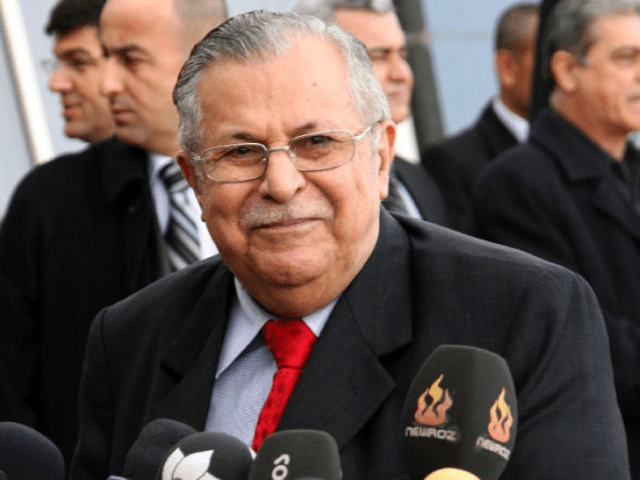WASHINGTON, D.C. – On Tuesday, former Iraqi president Jalal Talabani, a respected Kurdish statesman, passed away at a hospital in Berlin, Germany, after slipping into a coma.
“Mam Jalal,” or “Uncle Jalal” in Kurdish, was 83. During his time as the leader of the Patriotic Union of Kurdistan (PUK), Talabani held an authority as Iraq’s first Kurdish president that would bring world leaders to the table.
Upon taking the office of president in 2005, Talabani famously declared, “I am casting off my Kurdish clothes and wearing Iraqi ones instead. You must accept that.”
Analysts have noted that Talabani was also a proud Kurdish nationalist who knew how to downplay that aspect when he needed to.
As Eli Lake of Bloomberg put it, “Talabani was a symbol of a unified Iraq, and yet he helped negotiate considerable autonomy for the Kurdistan Regional Government in the writing of Iraq’s constitution.”
Last week, the Kurdish region of Iraq—led by his longtime Kurdish rival President Masoud Barzani—voted overwhelmingly in favor of independence during a historic referendum. At the time of the September 25 vote, Talabani had been out of the political arena for close to five years after suffering a debilitating stroke in 2012.
Just before the referendum vote, Barzani reportedly said the mission to achieve Kurdish independence would have been easier if Talabani was in better health. “My dear brother President Mam Jalal, I will never forget your brotherhood,” Barzani reportedly said.
The U.S. had brokered peace between Talabani and Barzani in 1998 with the signing of the Washington Accord.
Iraq, its neighbors, and the United States have rejected the Kurdish referendum vote and Baghdad has threatened to seize control of the region’s borders.
Talabani became a close U.S. ally, particularly during President George W. Bush’s administration, following the 2003 ouster of Hussein. Talabani was also instrumental in drafting the Iraqi constitution.
In 1988, Talabani sought refuge in Iran after Iraqi dictator Saddam Hussein gassed thousands of Kurds during what is known as the Halabja Massacre or Bloody Friday. Talabani ultimately came out in opposition to Hussein’s execution, on ideological grounds.
He similarly opposed the death penalty for Tariq Aziz, one of Iraq’s worst enemies, on the same grounds.
Years later, the PUK would go on to align with Iran. Talabani had also been instrumental in moderating back-channel talks between the U.S. and Iran.
Talabani devoted much of his life to the cause of seeing an independent Kurdistan, stemming back to his college days and when he was a law student at Baghdad University, from which he graduated in 1959.
Days before his death, Iran deployed a dozen tanks to the border of Iraqi Kurdistan following the referendum vote and halted flights to the autonomous region in retaliation for the vote.

COMMENTS
Please let us know if you're having issues with commenting.